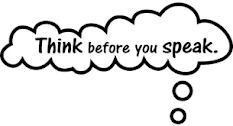This morning a friend of mine forwarded me a WhatsApp that he thought might interest me. The text, which appears to have been forwarded many times, is said to be a speech by Israel Prime Minister Binyamin Netanyahu. I gave it my close attention.
The content
of the speech certainly matched the Prime Minister’s views. It also struck an appropriately
defiant note, being in places an almost Churchillian rallying cry along the
lines of “it’s us against the world and against all the odds—and we will triumph”.
There were however some puzzling aspects to this piece of rhetoric.
The preface
to the speech suggested that it had been freshly delivered. It however
mentioned Israel’s victory in the Six Day War of 1967 as having happened 35 years
ago. That would suggest it was delivered in 2002 when the Prime Minister was
actually Ariel Sharon. Elsewhere the reference to the State of Israel—which was
founded in 1948—as being 60 years old would suggest that this piece was
composed in 2008, when the same office was held by Ehud Olmert. Also puzzling was the style. Whatever one
thinks of Netanyahu’s politics or his leadership, there is general consensus
that the one thing he is very good at doing is making speeches in the English
language. This one just didn’t read like one of his and, in my opinion, almost
certainly isn’t.
The sixth
and final chapter of Avot, at 6:6, contains a list of some 48 features that
either define a Torah scholar or enable him to become one. The last of these is
this:
הָאוֹמֵר דָּבָר בְּשֵׁם אוֹמְרוֹ
One who says something in the name of the
person who [first] says it.
Compliance
with this rule not only marks a person out as someone who pursues and upholds
the principles of the Torah. It even, as 6:6 continues, assists in bringing redemption
to the world.
Now if indeed this speech was composed by Prime Minister Netanyahu, it would be incumbent on anyone forwarding it to credit him as its author. But does this also impose a correlative requirement of NOT crediting a person as the author of something that he or she did NOT compose?
I have checked
out a number of commentaries on Avot but have yet to find any that discuss this
issue within the context of 6:6. I do however recall that false attribution of
authorship has sometimes been permitted where it has been felt necessary to do
so in order to achieve a greater good—for example to persuade the Jewish
population at large to accept an undoubtedly correct halachic ruling which, if
they heard it in the name of the original author, would carry considerably less
weight in their eyes and might lead to it being ignored or rejected. If my
memory serves me well, I think that Marc B. Shapiro lists some instances where this
happened and gives chapter and verse in his book, Changing the Immutable.
Thoughts,
anyone?
For comments and discussion of this post on Facebook, click here.















